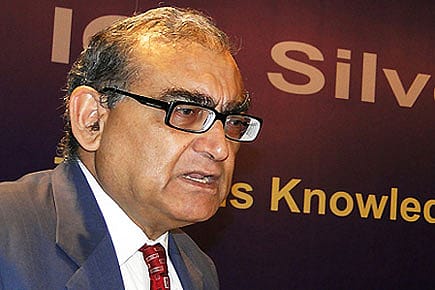The Media Does Need Regulation

But the kind of regulation Katju has in mind does nothing to address the real issues at stake
Much has been about Justice Markandey Katju's recent observations after taking over as Chairman of the Press Council. While a great number of people see merit in his suggestions, the reaction in the media has been negative. Freedom of the press has become a catchphrase to strike down even the need to debate the idea of regulation. The problem though lies not with the call for regulation, but with Katju's diagnosis.
His own views on the matter predate his current tenure. As far back as 2008, Katju had shared much the same sentiments in a lecture titled 'The role of art, literature and the media.' He spoke of a disconnect between Indian reality (largely rural, burdened with poverty) and what is covered by the media. He spoke of the lack of scientific temperament and prevalence of superstitions such as astrology on various news channels. And he called for the media to play the kind of progressive role it had played in Europe during its transition from a feudal to a modern industrial society.
There is very little to take exception to in such claims. Many journalists share his concerns. The problem, however, lies in the belief that any of this can be remedied through regulation of any sort. We are not living in 18th century Europe, and the media we have created for ourselves is largely corporate, relying on advertisement revenues for survival and profit. This creates a certain compulsion. It is a truism that India lives in many centuries at the same time, and the India that consumes media is not the same India that Katju believes is the only embodiment of Indian reality. The challenge before any media organisation then really lies in providing the right kind of mix, covering issues that concern the reality of the reader's world while also opening up windows to other realities. And doing so in a manner that is not didactic, but interesting to read, watch or hear.
Openomics 2026: Continuity and Conviction
06 Feb 2026 - Vol 04 | Issue 57
The performance state at its peak
None of this can be regulated by the Press Council or fixed by any external intervention. What, for one, can be done is this: ensure enough choice for the viewer or reader. To take one instance, Katju could call on the Government to take a look at that moribund organisation called Doordarshan. Surely, if viewers are appalled by content on TV, providing them with alternatives they might want to watch should be the answer.
Another way to approach the problem is to consider regulation that will enable a media environment where the kind of issues Katju has raised could be addressed internally. He would be on much firmer ground if he saw the role of intervention as mediating some of the intrinsic problems of a corporate media driven by advertising. Of course, regulation is needed to ensure advertisers do not armtwist media or that corporates do not seek to further their own interests in the guise of news. Certainly, funding and ownership of media should be far more transparent. No one with any real belief in ethical conduct would argue against an RTI-like provision for the business end of media.
Certainly, trends such as 'private treaties', a Bennett, Coleman and Co Ltd (BCCL) initiative, since imitated by various media groups, need to be regulated to ensure what passes for news is not paid for. Certainly, the whole idea of paid news needs to be regulated. Certainly, even the very idea of an owner-editor, and if not an owner-editor, a journalist who has significant stakes in the business end of the organisation he or she may be working for needs to be regulated. The problems created by such a situation, the potential for a conflict of interest where a journalist is committed more to his organisation than his profession, are more than obvious and are lived out on a daily basis in the Indian media.
Certainly, the current contract hire-and-fire system that operates in most organisations needs to be regulated. It has brought in certain benefits including much better pay packages, but it has also taken away safeguards that would prevent commercial considerations from overriding necessary journalistic standards. Almost no journalist can today cite journalistic norms in defence of any practice that goes against the perceived commercial interests of the proprietor. As a result, journalists have learnt to anticipate what is required of them and largely steer clear of issues that could raise such conflicts. This is not to argue for the days when unions choked the media but for an environment where individuals have the security to espouse unpalatable views, and organisations have to account for the reasons behind any dismissal.
No amount of punitive measures will produce an ethical media, it will only happen if you have a media where there is a premium on ethical journalism and ethical journalists. The ability of those journalists who share Katju's views on trends in the media to freely air these views within their organisations and actually make them register is a far better way of ensuring the kind of media we need.
